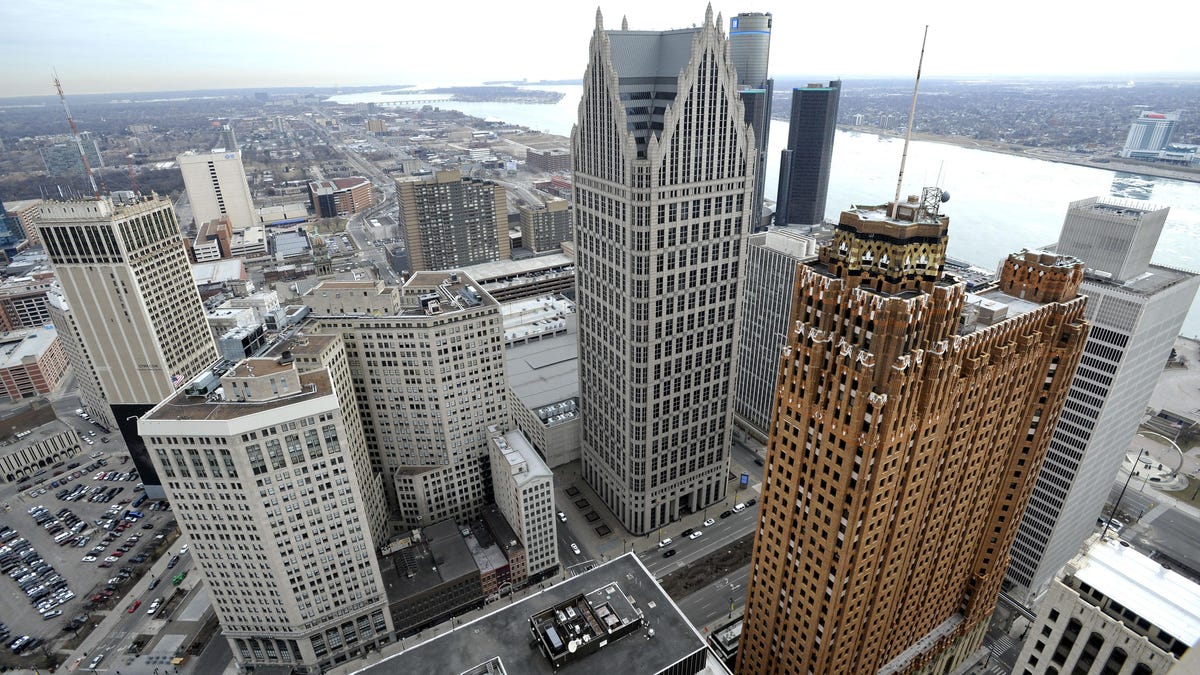For the second time this year, Detroit will send an extra payment to retired city firefighters, police officers and other public servants.
The cash infusion is a welcome boost for about 18,000 pensioners, especially around the holidays. It comes from money budgeted by Mayor Mike Duggan’s administration and the City Council earlier this year to provide relief for retirees who saw their pension benefits cut during the city’s bankruptcy.
“We are grateful for the payment contribution to our first responders and their beneficiaries,” said Ron Thomas, board chairman for the City of Detroit’s Police and Fire Retirement System.
“This additional payment made this time of year should be a welcome addition to those who have sacrificed to serve Detroiters for their careers. We wish all active and retired first responders joyous holidays.”
The payments are scheduled to go out Dec. 1, according to a press release from the retirement board. The city will pay out $661.20 each to 7,562 eligible PFRS retirees. An additional 10,502 pensioners who worked for the city in other, General Fund-supported roles will receive payments of $476.09, said Stephanie Davis, a spokeswoman for the Office of the Chief Financial Officer.
Retirees got similar payments in May after Detroit Bankruptcy Judge Thomas Tucker signed off on the city’s plan to provide “13th check” disbursements this year, a reference to the 12 monthly pension payments in typical years. Court approval was needed because the city’s bankruptcy exit plan or “plan of adjustment” needed to be changed, Davis said.
The bankruptcy court has retained jurisdiction over parts of the city’s plan of adjustment since Detroit emerged from the nation’s largest municipal bankruptcy in history in December 2014.
As part of the exit plan from bankruptcy, general retirement workers agreed to take a 4.5% base cut in pensions and the elimination of an annual cost-of-living increase. The pensions of police and firefighters were left alone, but an annual 2.25% cost-of-living adjustment was reduced to about 1%.
Duggan proposed this year’s supplemental payments, and the Detroit City Council approved them at its January 2025 meeting in the form of a $10 million pot of money to be divided equally between the general as well as police and fire retirement systems.
“The second supplemental paycheck for retirees is coming earlier this year because it did not require the City to seek approval from bankruptcy court to amend the Plan of Adjustment,” Davis said in an email.
In a filing with the bankruptcy court to justify the first extra pension check, Detroit’s city government acknowledged it wanted to “provide some relief to those retirees and beneficiaries” after it “expressed to the City the hardships that they have endured due to the pension reductions.”
In the past, “13th checks” were issued when the pension funds had excess money, which officials decided could be distributed to the retirees. But critics blamed this practice in part for undermining the solvency of the city’s retirement funds, and the city’s bankruptcy exit plan banned such checks.
The future of the city issuing an extra pension check next year is unclear as Mayor-elect Mary Sheffield prepares to take office in January, while Duggan continues to pursue his independent candidacy for Michigan governor.
The city’s budget was experiencing strong revenue growth earlier this year, but the Trump administration has been aggressively pursuing certain federal budget cuts that could affect the city. In addition, the University of Michigan’s economists recently released a report saying the Michigan economy has hit a “growth pause.”
Detroit is also set to spend its last COVID relief dollars from the 2021 American Rescue Plan Act by the end of next year.
gschwab@detroitnews.com

